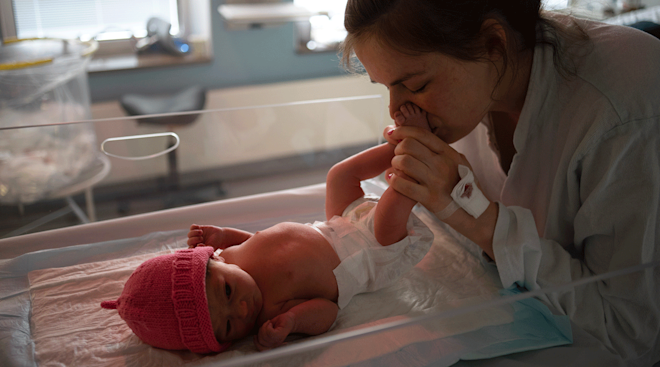6 Important Things to Do as Soon as Baby Arrives
It’s no secret that pregnancy comes with a long to-do list. There are the obvious tasks (setting up a nursery and babyproofing your home), and the less so (applying for baby’s social security card and buying life insurance). You’ll also be faced with a host of legal and financial decisions, like writing or revising your will. But with a little bit of planning, you can get a head start on these crucial to-dos to save you time (and stress) once baby arrives. Here, six things you should think about now so you don’t have to stress about them later.
Baby will need a social security number for tax purposes, health insurance, a future bank account, government benefits and more. The simplest way to get one is by completing a birth registration form at the hospital (most keep the form on hand) and you’ll receive the card in the mail. If you’re giving birth at home, visit your local local Social Security Administration office and request a number in person. You’ll fill out a form and provide proof of identity along with two documents showing baby’s age, sex and citizenship status, such as their birth certificate and hospital birth record. You should receive a social security card in six to 12 weeks.
You just brought a beautiful new life into the world and the last thing you want to think about is something bad happening—ever. But it’s always better to be prepared, especially for events that have life-changing consequences. Life insurance provides an amount of money, known as a death benefit, that gets distributed to your beneficiaries to help replace the loss of your income in the event of your death. You can opt for a term life or whole life policy: Term life insurance provides coverage for a set number of years, whereas whole life insurance provides lifetime coverage with a cash value that builds over time.
The coverage you need differs per person, but younger parents can obtain life insurance term coverage for themselves or for their children at a relatively low cost. Even if your employer offers life insurance, consider buying a separate policy so you still have coverage even if you leave your job. (A parent who doesn’t work or isn’t eligible for life insurance through their employer can also take out their own life insurance policy.) Every individual and family’s coverage needs are different, so speak with a financial professional or insurance agent about your personal situation.
Estate planning ensures your loved ones are provided for and taken care of according to your wishes. If you haven’t created a will yet, start by taking inventory of your assets, including real estate, investments, retirement savings, insurance policies and business interests. A lawyer can guide you through the process and also help decide who you want to designate as personal representative, and who will care for your child as guardian. You should also discuss who you want to manage the assets inherited by baby. It’s not uncommon to name one person as the child’s personal guardian and another person as financial guardian. Talk to your attorney about your options and whether you should include a trust as part of your will.
You already know baby will bring you unimaginable joy, but that doesn’t make it any easier to handle all the additional costs that come with caring for them. Fortunately, the federal government provides parents with a tax bonus; you just have to do your due diligence when it comes to choosing the one that works for you.
When you add a new child to your family, you can claim a dependent exemption, meaning you get an extra deduction. You may also be eligible for a tax credit, which reduces your taxes dollar for dollar. Two common ones are the child tax credit, which is now worth up to $2,000 per child, and the child and dependent care credit, which, depending on your income, reimburses you for up to 35 percent of the first $3,000 you pay in child care expenses. You must be eligible for these credits and they are only available to certain ages. You might also want to revise your W-4 form with your employer to include your new dependent.
You generally have about 30 days to add baby to your health plan after birth—right when the hospital bills start rolling in—so start thinking now about the best way to get baby covered. Find out the answers to important questions, like which parent’s plan will be the most cost-effective and comprehensive, and whether the plan fully covers first-year pediatrician visits. Decide what makes the most sense for your family so you’ll have the best possible coverage, both for preventative care and if baby gets sick or hurt.
As a new parent, you’re bound to spend almost every waking (and sleeping!) moment thinking about baby, but it’s still important to invest in some quality alone time with your partner. Try to designate at least one date night a month so the two of you can reconnect away from the stresses of new parenthood. After all, maintaining a strong partnership isn’t only beneficial for you, but for baby too.
Navigate forward to interact with the calendar and select a date. Press the question mark key to get the keyboard shortcuts for changing dates.




















































